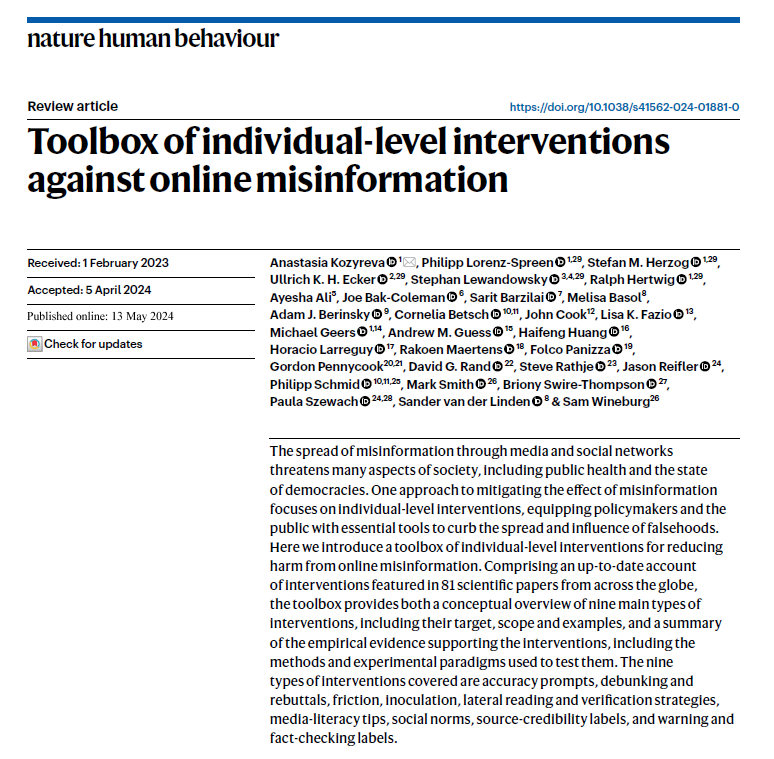
Researcher @mpib_berlin @arc_mpib. Interested in decision making under uncertainty, digital ethics, and cognition in digital environments. #нетвойне
How to get URL link on X (Twitter) App


 In this review, we focus on behavioral and cognitive interventions to counter online misinformation that are supported by empirical evidence. The toolbox includes 9 types of interventions described both in the paper and in the online supplement. 2/10…terventionstoolbox.mpib-berlin.mpg.de
In this review, we focus on behavioral and cognitive interventions to counter online misinformation that are supported by empirical evidence. The toolbox includes 9 types of interventions described both in the paper and in the online supplement. 2/10…terventionstoolbox.mpib-berlin.mpg.de

 Content moderation of online speech is a moral minefield, especially when 2 key values come into conflict: upholding freedom of expression and preventing harm caused by misinformation. In our study, we examined how the U.S. public would approach such difficult trade-offs. 2/11
Content moderation of online speech is a moral minefield, especially when 2 key values come into conflict: upholding freedom of expression and preventing harm caused by misinformation. In our study, we examined how the U.S. public would approach such difficult trade-offs. 2/11


